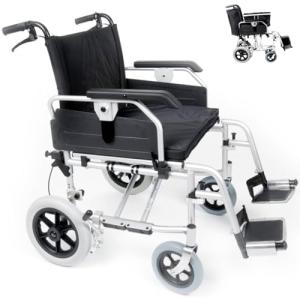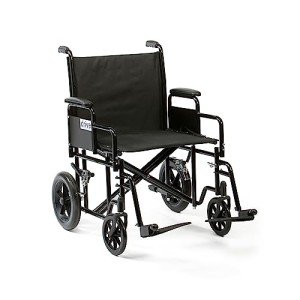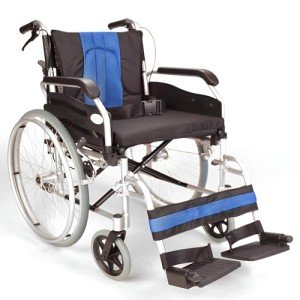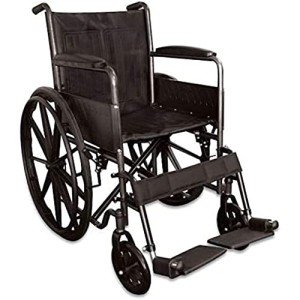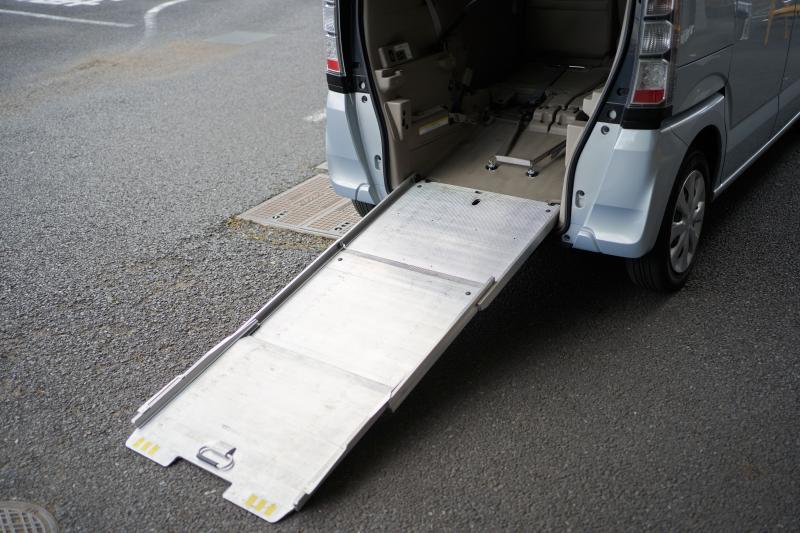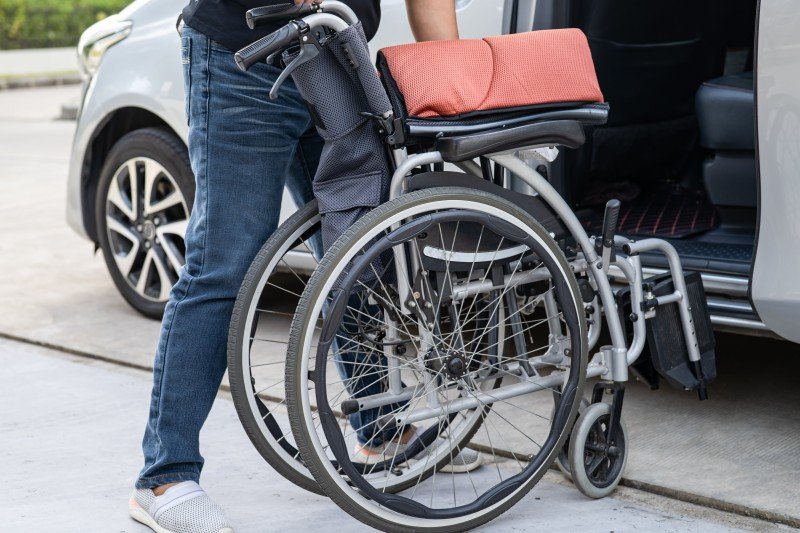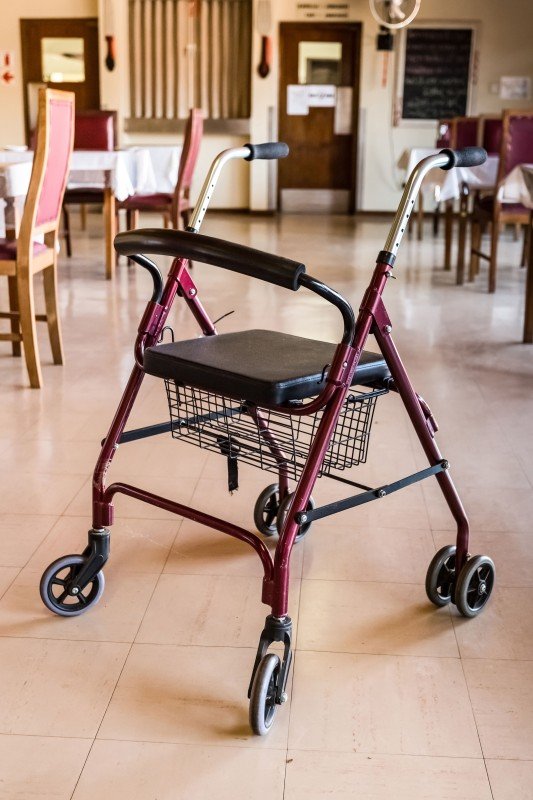Bariatric wheelchairs are specially designed mobility aids that cater to individuals who require a wider and more reinforced seating area due to their size or weight. These wheelchairs are designed to provide comfort, stability, and durability to accommodate plus-size individuals, ensuring they can move around independently and comfortably. In this comprehensive guide, we will delve into the world of bariatric wheelchairs, exploring their features, benefits, types, and everything else you need to know to make an informed decision.
Bariatric Wheelchairs
Bariatric wheelchairs are designed for individuals who require a higher weight capacity and a wider seating area compared to standard wheelchairs. These wheelchairs are built to provide stability, support, and comfort to individuals with obesity or other medical conditions that necessitate a heavy-duty mobility solution.
How Do Bariatric Wheelchairs Differ from Standard Wheelchairs?
Bariatric wheelchairs differ from standard wheelchairs in several key ways. Here are some of the main differentiators:
Weight Capacity
Bariatric wheelchairs have a significantly higher weight capacity than standard wheelchairs, typically ranging from 300 to 1000 pounds or more. This extra weight capacity is essential for safely accommodating individuals with higher body weights.
Seating Width
The seating width of bariatric wheelchairs is wider than that of standard wheelchairs to provide a more comfortable and spacious sitting area for larger individuals. This extra width helps prevent discomfort and ensures proper weight distribution.
Frame Construction
Bariatric wheelchairs feature a reinforced frame construction to support the increased weight capacity. The materials used in bariatric wheelchairs are often heavier-duty and more durable than those of standard wheelchairs to ensure long-lasting reliability.
Wheel Size
The wheels of bariatric wheelchairs are often larger and sturdier than those of standard wheelchairs to provide enhanced stability and maneuverability. The larger wheels help navigate uneven terrain and provide a smoother ride for the user.
Overall Size
Bariatric wheelchairs are generally larger and heavier than standard wheelchairs to accommodate the needs of larger individuals. The overall size of the wheelchair may be bulkier to ensure a comfortable fit for the user.
Benefits of Using Bariatric Wheelchairs
There are numerous benefits to using a bariatric wheelchair, especially for individuals who require extra support and comfort due to their size or weight. Here are some of the key advantages:
Enhanced Comfort
Bariatric wheelchairs offer a wider seating area and increased weight capacity, providing enhanced comfort for plus-size individuals. The extra space reduces the risk of pressure sores and discomfort during long periods of sitting.
Improved Stability
The reinforced frame construction and sturdy wheel design of bariatric wheelchairs offer improved stability and balance, ensuring a safer and more secure experience for the user. This added stability is essential for individuals with mobility issues.
Increased Mobility
By utilizing a bariatric wheelchair, individuals with mobility challenges can enjoy increased independence and freedom to move around both indoors and outdoors. The wheelchair's robust design and durable construction enable users to navigate various terrains with ease.
Customizable Features
Many bariatric wheelchairs come with customizable features such as adjustable armrests, footrests, and seating options to cater to individual preferences and requirements. These customizable features ensure a personalized and comfortable fit for the user.
Durability and Longevity
Bariatric wheelchairs are built to withstand heavier weight capacities and extended daily use, making them highly durable and long-lasting. The reinforced frame and materials used in bariatric wheelchairs contribute to their longevity and reliability.
Features to Look for in a Bariatric Wheelchair
When choosing a bariatric wheelchair, it's essential to consider certain features to ensure it meets your specific needs and requirements. Here are some key features to look for in a bariatric wheelchair:
Weight Capacity
Ensure the bariatric wheelchair has a weight capacity that accommodates your body weight safely. Select a wheelchair with a weight capacity that provides a suitable margin above your weight to ensure optimal stability and performance.
Seating Width and Depth
Choose a wheelchair with a seating width and depth that offers ample space for comfortable seating. The seat dimensions should allow for proper weight distribution and prevent pressure points, ensuring a comfortable sitting experience.
Frame Material
Opt for a bariatric wheelchair with a sturdy and durable frame material, such as steel or aluminum, to support the increased weight capacity effectively. The frame material should be resistant to corrosion and wear for long-term use.
Wheel Design
Select a wheelchair with large, sturdy wheels that provide stability and maneuverability on various terrains. The wheel design should be durable and reliable to ensure a smooth and comfortable ride for the user.
Armrests and Footrests
Look for a wheelchair with adjustable armrests and footrests to accommodate your comfort preferences and provide proper support for your arms and legs. Adjustable armrests and footrests can enhance the overall sitting experience.
Cushioning and Padding
Choose a wheelchair with adequate cushioning and padding on the seat and backrest to prevent pressure sores and discomfort. The cushioning should be supportive and comfortable to ensure a pleasant sitting experience.
Foldability and Portability
Consider a bariatric wheelchair that offers foldability and portability for easier transportation and storage. A foldable wheelchair can be conveniently stored in a vehicle or compact space when not in use.
Types of Bariatric Wheelchairs
There are several types of bariatric wheelchairs available to cater to different needs and preferences. Here are some common types of bariatric wheelchairs:
Manual Bariatric Wheelchairs
Manual bariatric wheelchairs are propelled by the user or a caregiver and do not require a battery or motor for operation. These wheelchairs are suitable for individuals who have sufficient upper body strength to self-propel.
Motorized Bariatric Wheelchairs
Motorized bariatric wheelchairs are powered by a battery-operated motor that propels the wheelchair forward and backward. These wheelchairs are ideal for individuals who may have limited upper body strength or require assistance with mobility.
Transport Bariatric Wheelchairs
Transport bariatric wheelchairs are lightweight and compact, designed for easy transport and travel. These wheelchairs are typically foldable and portable, making them ideal for use in vehicles or for on-the-go mobility.
Heavy-Duty Bariatric Wheelchairs
Heavy-duty bariatric wheelchairs are built to withstand higher weight capacities and provide extra durability and support. These wheelchairs are designed for individuals with significant mobility challenges and require a robust mobility solution.
Choosing the Right Bariatric Wheelchair for Your Needs
When selecting a bariatric wheelchair, it's essential to consider your specific needs, preferences, and lifestyle to choose the right wheelchair for you. Here are some factors to consider when choosing a bariatric wheelchair:
Body Weight
Consider your body weight when selecting a bariatric wheelchair to ensure it can safely accommodate your weight capacity. Choose a wheelchair with a weight capacity that leaves a suitable margin above your weight for added safety.
Mobility Requirements
Assess your mobility requirements, including whether you need a manual or motorized wheelchair based on your ability to self-propel. Consider factors such as indoor and outdoor use, terrain, and daily activities to determine the most suitable wheelchair type.
Comfort and Support
Prioritize comfort and support when choosing a bariatric wheelchair, including features such as cushioning, padding, adjustable armrests, and footrests. Ensure the wheelchair provides a comfortable and supportive seating experience for extended periods.
Durability and Reliability
Select a bariatric wheelchair with durable materials and construction to ensure longevity and reliability. Consider the frame material, wheel design, and overall build quality to choose a wheelchair that can withstand daily use and provide lasting comfort.
Customization Options
Look for a bariatric wheelchair with customizable features that allow you to adjust the seating, armrests, footrests, and other components to suit your individual preferences. Customization options can enhance the overall comfort and usability of the wheelchair.
Budget Considerations
Set a budget for your bariatric wheelchair purchase and explore options within your price range. Balance factors such as quality, features, and brand reputation to find a wheelchair that offers the best value for your investment.
Maintaining and Caring for Your Bariatric Wheelchair
To ensure the longevity and performance of your bariatric wheelchair, proper maintenance and care are essential. Here are some tips for maintaining and caring for your wheelchair:
Regular Cleaning
Clean your bariatric wheelchair regularly to remove dirt, dust, and debris that can accumulate on the frame, wheels, and seating surfaces. Use mild soap and water to wipe down the wheelchair and prevent buildup.
Checking for Wear and Tear
Inspect your wheelchair for any signs of wear and tear, such as loose bolts, damaged wheels, or frayed upholstery. Check the frame, wheels, brakes, and other components regularly to identify any issues that require repair or replacement.
Lubricating Moving Parts
Apply lubricant to moving parts such as the wheels, axles, and brakes to ensure smooth operation and prevent excessive friction or squeaking. Regular lubrication can extend the lifespan of these components and maintain optimal performance.
Tire Maintenance
Check the tire pressure regularly and inflate the tires to the recommended level to ensure proper stability and maneuverability. Inspect the tires for any signs of wear or damage and replace them as needed to prevent accidents or breakdowns.
Battery Care (For Motorized Wheelchairs)
If you have a motorized bariatric wheelchair, follow the manufacturer's guidelines for battery care and maintenance. Charge the battery according to the instructions and store it in a cool, dry place to prolong its lifespan.
Professional Servicing
Schedule regular professional servicing and maintenance for your bariatric wheelchair to ensure it remains in optimal condition. A qualified technician can inspect the wheelchair, make any necessary repairs, and address any issues proactively.
Tips for Using Bariatric Wheelchairs Safely
Using a bariatric wheelchair safely is crucial to prevent accidents, injuries, and discomfort. Here are some safety tips for using bariatric wheelchairs:
Follow Weight Capacity Guidelines
Adhere to the weight capacity guidelines of your bariatric wheelchair to prevent overloading and ensure safe operation. Exceeding the weight limit can compromise the stability and structural integrity of the wheelchair.
Engage Brakes When Stationary
Always engage the brakes of your bariatric wheelchair when stationary to prevent unintended movement or rolling. Lock the brakes securely before transferring into or out of the wheelchair to maintain stability.
Secure Footrests and Armrests
Ensure that the footrests and armrests of your wheelchair are securely attached and adjusted to the correct height for comfort and support. Loose or improperly positioned footrests and armrests can lead to instability and discomfort.
Use Ramps and Slopes Carefully
Exercise caution when navigating ramps, slopes, and uneven terrain with your bariatric wheelchair. Approach inclines slowly and steadily, and avoid sudden movements to maintain control and prevent tipping.
Avoid Overreaching
Avoid overreaching or leaning too far to the side while seated in your wheelchair, as this can cause imbalance and increase the risk of tipping over. Keep your center of gravity aligned and maintain a stable sitting position.
Maintain Proper Posture
Maintain good posture while seated in your bariatric wheelchair to ensure proper weight distribution and prevent strain on your back and shoulders. Sit upright with your back against the backrest and use support cushions if needed.
Frequently Asked Questions (FAQs)
Is there a weight limit for bariatric wheelchairs?
Yes, bariatric wheelchairs have weight limits that vary depending on the model and brand. It's essential to choose a wheelchair with a weight capacity that safely accommodates your body weight to ensure stability and performance.
Can bariatric wheelchairs be customized for individual needs?
Yes, many bariatric wheelchairs come with customizable features such as adjustable armrests, footrests, and seating options to cater to individual preferences and requirements. These customization options allow users to personalize their wheelchair for optimal comfort.
Are bariatric wheelchairs covered by insurance?
In some cases, bariatric wheelchairs may be covered by insurance, depending on the individual's medical condition, prescribed need for the wheelchair, and insurance policy coverage. It's advisable to check with your insurance provider to determine if bariatric wheelchairs are eligible for coverage.
How do I know if a bariatric wheelchair is the right choice for me or my loved one?
To determine if a bariatric wheelchair is the right choice, consider factors such as body weight, mobility requirements, comfort preferences, and budget constraints. Consult with a healthcare provider or mobility specialist to assess your needs and find a suitable wheelchair.
Can bariatric wheelchairs be used for outdoor activities?
Yes, many bariatric wheelchairs are designed for both indoor and outdoor use, including navigating various terrains such as sidewalks, parks, and trails. Choose a bariatric wheelchair with sturdy wheels and a durable frame for enhanced performance outdoors.
What are the main differences between manual and electric bariatric wheelchairs?
The main difference between manual and electric bariatric wheelchairs is the mode of propulsion. Manual wheelchairs are propelled by the user or a caregiver using physical strength, while electric wheelchairs are powered by a battery-operated motor for effortless movement.
Bariatric wheelchairs play a vital role in enhancing mobility and comfort for plus-size individuals, providing a supportive and reliable mobility solution for daily activities. By understanding the features, benefits, types, and maintenance tips of bariatric wheelchairs, individuals can make informed decisions to choose the right wheelchair that meets their unique needs. With a focus on safety, comfort, and durability, bariatric wheelchairs offer independence and freedom to users, enabling them to navigate the world with confidence and ease.

